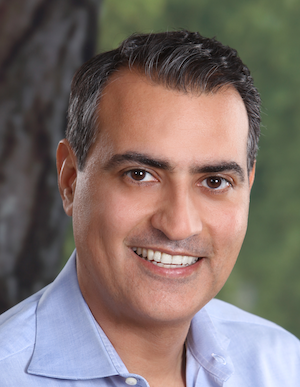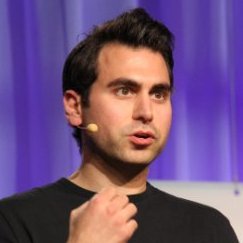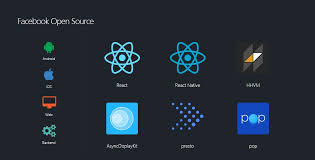 There's an interesting verbal battle going on between two prominent tech venture capitalists over the future of AI in health care. In an interview in Vox, Marc Andreessen asserted that Vinod Khosla "has written all these stories about how doctors are going to go away...And I think he is completely wrong." Mr. Khosla was quick to respond via Twitter: "Maybe @pmarca [Mr. Andreessen] should read what I think before assuming what I said about doctors going away." He included a link to his detailed "speculations and musings" on the topic. It turns out that Mr. Khosla believes that AI will take away 80% of physicians' work, but not necessarily 80% of their jobs, leaving them more time to focus on the "human aspects of medical practice such as empathy and ethical choices"...
There's an interesting verbal battle going on between two prominent tech venture capitalists over the future of AI in health care. In an interview in Vox, Marc Andreessen asserted that Vinod Khosla "has written all these stories about how doctors are going to go away...And I think he is completely wrong." Mr. Khosla was quick to respond via Twitter: "Maybe @pmarca [Mr. Andreessen] should read what I think before assuming what I said about doctors going away." He included a link to his detailed "speculations and musings" on the topic. It turns out that Mr. Khosla believes that AI will take away 80% of physicians' work, but not necessarily 80% of their jobs, leaving them more time to focus on the "human aspects of medical practice such as empathy and ethical choices"...
 In early July 2023, the World Health Organization (WHO) issued its 2023 report on Emerging Technologies and Scientific Innovations: A Global Public Health Perspective. This insightful and detailed report is the result of strategic engagement with a panel of global health experts through the use of an online Delphi method, roundtable discussions, and key informant interviews. The purpose of this report is to identify innovations in research and emerging technologies that have the potential to impact global health in the next five to ten years.
In early July 2023, the World Health Organization (WHO) issued its 2023 report on Emerging Technologies and Scientific Innovations: A Global Public Health Perspective. This insightful and detailed report is the result of strategic engagement with a panel of global health experts through the use of an online Delphi method, roundtable discussions, and key informant interviews. The purpose of this report is to identify innovations in research and emerging technologies that have the potential to impact global health in the next five to ten years.
 One of the most dramatic shifts in recent years that is empowering epidemiologists to be more effective at their jobs is occurring due to improvements in data technologies. In the past, the old "relational" data model dictated that data had to be highly structured, and as a result treated in distinct silos. This made it difficult, if not impossible, to analyze data from multiple sources to find correlations. Epidemiologists would spend many minutes or even hours on each query they ran to get results back, which is unacceptable when you need to test dozens of hypotheses to try to understand and contain a fast-moving outbreak. (Imagine how you would feel if each one of your Google searches took 45 minutes to return!) By contrast, using newer technologies, the same queries on the same hardware can run in seconds.
One of the most dramatic shifts in recent years that is empowering epidemiologists to be more effective at their jobs is occurring due to improvements in data technologies. In the past, the old "relational" data model dictated that data had to be highly structured, and as a result treated in distinct silos. This made it difficult, if not impossible, to analyze data from multiple sources to find correlations. Epidemiologists would spend many minutes or even hours on each query they ran to get results back, which is unacceptable when you need to test dozens of hypotheses to try to understand and contain a fast-moving outbreak. (Imagine how you would feel if each one of your Google searches took 45 minutes to return!) By contrast, using newer technologies, the same queries on the same hardware can run in seconds.  Flow Health today announced that it has formed a five-year partnership with the U.S. Department of Veterans Affairs (VA) to build a medical knowledge graph with deep learning to inform medical decision-making and train artificial intelligence (AI) to personalize care plans. The partnership’s fundamental objective is to understand the common elements that make certain people susceptible to particular diseases, pinpointing effective treatments and identifying possible side effects in order to inform care decisions...
Flow Health today announced that it has formed a five-year partnership with the U.S. Department of Veterans Affairs (VA) to build a medical knowledge graph with deep learning to inform medical decision-making and train artificial intelligence (AI) to personalize care plans. The partnership’s fundamental objective is to understand the common elements that make certain people susceptible to particular diseases, pinpointing effective treatments and identifying possible side effects in order to inform care decisions... Bitscopic Inc., a Silicon Valley based healthcare analytics company, announced today that the US Department of Veteran's Affairs (VA) Palo Alto Medical Center has selected Bitscopic's PraediAlert platform for clinical surveillance. PraediAlert is an FDA registered clinical surveillance system that allows hospitals to improve patient care and patient safety by minimizing and managing patients at risk for hospital acquired infections (HAI) as well as optimizing care team productivity and workflows to improve patient outcomes.
Bitscopic Inc., a Silicon Valley based healthcare analytics company, announced today that the US Department of Veteran's Affairs (VA) Palo Alto Medical Center has selected Bitscopic's PraediAlert platform for clinical surveillance. PraediAlert is an FDA registered clinical surveillance system that allows hospitals to improve patient care and patient safety by minimizing and managing patients at risk for hospital acquired infections (HAI) as well as optimizing care team productivity and workflows to improve patient outcomes. WELL Health Technologies Corp., a company focused on consolidating and modernizing clinical and digital assets within the primary healthcare sector, is pleased to announce the launch of apps.health, a digital health app marketplace and innovation hub that connects digital health technology companies and software developers to the WELL network of over 2,000 primary healthcare clinics and 10,000 physicians. WELL intends on collaborating with digital health application developers to market and promote the features and benefits of their products and services to clinics and physicians, and by doing so accelerate adoption and enable improved healthcare experiences for both physicians and patients.
WELL Health Technologies Corp., a company focused on consolidating and modernizing clinical and digital assets within the primary healthcare sector, is pleased to announce the launch of apps.health, a digital health app marketplace and innovation hub that connects digital health technology companies and software developers to the WELL network of over 2,000 primary healthcare clinics and 10,000 physicians. WELL intends on collaborating with digital health application developers to market and promote the features and benefits of their products and services to clinics and physicians, and by doing so accelerate adoption and enable improved healthcare experiences for both physicians and patients. Whether it's Google's headline-grabbing DeepMind AlphaGo victory, or Apple's weaving of "using deep neural network technology" into iOS 10, deep learning and artificial intelligence are all the rage these days, promising to take applications to new heights in how they interact with us mere mortals. To go deeper (yes, I went there) on the subject, I reached out to the team at the deep learning-focused company Skymind, creators of Deep Learning For Java (DL4J), and authors of the recently released O'Reilly book Deep Learning: A Practitioner's Approach, Josh Patterson and Adam Gibson...
Whether it's Google's headline-grabbing DeepMind AlphaGo victory, or Apple's weaving of "using deep neural network technology" into iOS 10, deep learning and artificial intelligence are all the rage these days, promising to take applications to new heights in how they interact with us mere mortals. To go deeper (yes, I went there) on the subject, I reached out to the team at the deep learning-focused company Skymind, creators of Deep Learning For Java (DL4J), and authors of the recently released O'Reilly book Deep Learning: A Practitioner's Approach, Josh Patterson and Adam Gibson... With more than 1.65 billion people on Facebook and more coming online every day, our engineers are hard at work making sure that our services work smoothly for everyone. Part of this work involves streamlining our processes so we can keep moving fast as we continue to scale: We build tools that enable engineers to work more easily across platforms, automate testing to catch problems sooner, and help improve the overall performance of our products...
With more than 1.65 billion people on Facebook and more coming online every day, our engineers are hard at work making sure that our services work smoothly for everyone. Part of this work involves streamlining our processes so we can keep moving fast as we continue to scale: We build tools that enable engineers to work more easily across platforms, automate testing to catch problems sooner, and help improve the overall performance of our products... Open source and crowdsourcing—uttering these words at a meeting of the United Nations before the year 2010 would have made you persona non grata. In fact, the fastest way to discredit yourself at any humanitarian meeting just five years ago was to suggest the use of open source software and crowdsourcing in disaster response. Then, a tragic earthquake occured in Haiti in 2010, and OpenStreetMap and Ushahidi were deployed in the aftermath. Their use demonstrated the potential of free and open source crowdsourcing platforms in humanitarian contexts. Then, Typhoon Ruby in the Philippines occured five years later. What technology was used?...
Open source and crowdsourcing—uttering these words at a meeting of the United Nations before the year 2010 would have made you persona non grata. In fact, the fastest way to discredit yourself at any humanitarian meeting just five years ago was to suggest the use of open source software and crowdsourcing in disaster response. Then, a tragic earthquake occured in Haiti in 2010, and OpenStreetMap and Ushahidi were deployed in the aftermath. Their use demonstrated the potential of free and open source crowdsourcing platforms in humanitarian contexts. Then, Typhoon Ruby in the Philippines occured five years later. What technology was used?... As Halloween approaches, the usual spate of horror movies will intrigue audiences across the US, replete with slashers named Jason or Freddie running amuck in the corridors of all too easily accessible hospitals. They grab a hospital gown and the zombies fit right in. While this is just a movie you can turn off, the real horror of patient data theft can follow you...Unfortunately, this horror movie scenario is similar to how data thefts often occur at medical facilities. In 2015, the healthcare industry was one of the top three hardest hit industries with serious data breaches and major attacks, along with government and manufacturers. Packed with a wealth of exploitable information such as credit card data, email addresses, Social Security numbers, employment information and medical history records, much of which will remain valid for years, if not decades and fetch a high price on the black market.
As Halloween approaches, the usual spate of horror movies will intrigue audiences across the US, replete with slashers named Jason or Freddie running amuck in the corridors of all too easily accessible hospitals. They grab a hospital gown and the zombies fit right in. While this is just a movie you can turn off, the real horror of patient data theft can follow you...Unfortunately, this horror movie scenario is similar to how data thefts often occur at medical facilities. In 2015, the healthcare industry was one of the top three hardest hit industries with serious data breaches and major attacks, along with government and manufacturers. Packed with a wealth of exploitable information such as credit card data, email addresses, Social Security numbers, employment information and medical history records, much of which will remain valid for years, if not decades and fetch a high price on the black market.